TEACHING & LEARNING
Seniors
The Senior section of the school is for students from 11 to 18 years of age, and comprises 3 programmes: Key Stage 3 (National Curriculum for England); IGCSE and IB Diploma.
TEACHING & LEARNING
The Senior section of the school is for students from 11 to 18 years of age, and comprises 3 programmes: Key Stage 3 (National Curriculum for England); IGCSE and IB Diploma.
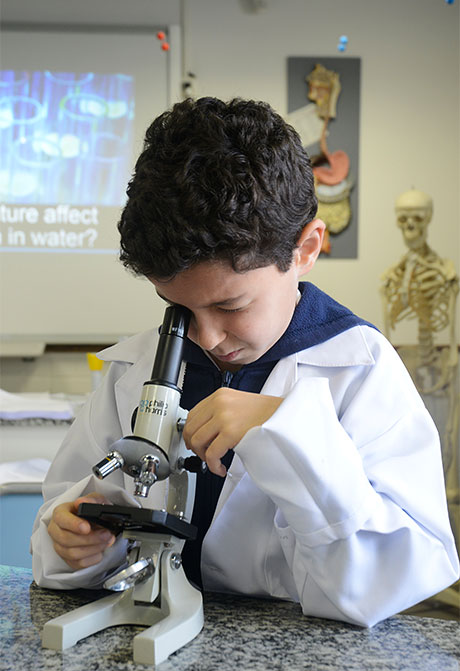
From Year 7 to Year 9, our programme broadly follows the UK National Curriculum – Key Stage 3, adapted in the light of cultural considerations and educational requirements in Brazil - ensuring compliance with Brazilian Ensino Fundamental regulations. Within this structure, we are able to plan and organise teaching and learning to best suit the needs of our students.
The academic curriculum for these year-groups includes: Mathematics; Languages (English, Portuguese, French and Spanish); Science (Biology, Chemistry, Physics); Humanities (History, Geography, and an option for Global Perspectives); the Arts (Art, Drama, Music); and Information & Communication Technology (ICT). In this way, we ensure that our students receive a broad general grounding across many different disciplines, before they begin to select more specialist subject options in Years 9 and 10.
Personal, Social and Health Education (PSHE) and Physical Education (PE) are both taught as separate subjects through the Flourishing Programme for Care and Guidance and PE programmes. Additionally, we routinely embed topics relating to these areas in the mainstream curriculum. Students are also encouraged to develop a range of other skills and interests through the TBS Diploma Award, which recognises their achievements in a wide range of co-curricular areas.
Throughout these middle years of Key Stage 3, we aim to support our students in many different ways. This includes regular individual tutoring, as well as specialist Learning Support and Second Language tuition for those who require extra help.
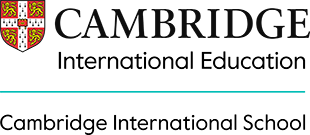
In Years 10 and 11, students are prepared for International General Certificate of Secondary Education (lGCSE) qualifications in a number of subjects. They also receive additional lessons in certain subjects to ensure compliance with Brazilian regulations.
The IGCSE course is a globally renowned two year qualification, culminating in final examinations at the end of Year 11. The IGCSE is recognised by universities and employers around the world, and the majority of courses are administered by the University of Cambridge (CIE) examination board.
All IGCSE students continue with the core subjects of Mathematics, English, Portuguese, Science (Biology, Chemistry, Physics), History and Geography. They also select at least one Arts subject (Art, Drama, Music) as well as further options from French, Spanish, Global Perspectives and Information and Communication Technology (ICT), therefore maintaining a broad education programme.
Personal, Social and Health Education (PSHE) and Physical Education (PE) continue throughout these years. In Year 11, students also begin Filosofia and Sociologia, ensuring compliance with Ensino Médio. Students continue to develop their skills and interests through a wide range of other co-curricular activities.
During the IGCSE years, our Student Support Services continue to ensure that all students can access the curriculum. Portuguese as a Second Language is available for non-native speakers, as well as English as an Additional Language (EAL) and Learning Support tuition for those who may require extra help. Our University and Careers Guidance Team begins to advise students on their long-term careers and university options, in collaboration with each student’s regular tutor.
The International General Certificate of Secondary Education (IGCSE) is a series of examinations taken in schools worldwide and in the UK at the age of 15/16. Our TBSRJ Year 11 (Class 9) students sit examination papers in up to 12 subjects, whilst most UK students will only sit 9 on average. The top grade is an A*, and a passing grade for further study is widely considered to be a C.
The Table below shows our school’s performance in the IGCSE - Nov 2023.
TBSRJ IGCSE RESULTS |
2023 |
|---|---|
| Total IGCSE Students | 105 |
| Total number of examinations taken | 1077 |
| % A*s | 13.5 |
| % A*- As | 34.1 |
| % A*- Bs | 54.5 |
| % A*- Cs | 75.7 |
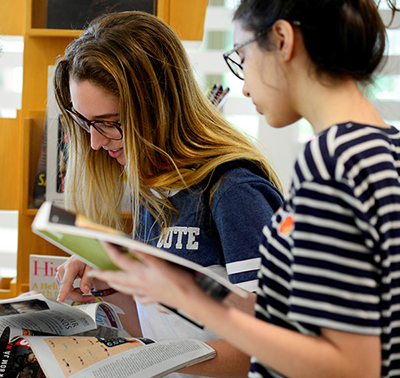
In Years 12 and 13, students study the International Baccalaureate (IB) Diploma programme, which is one of the most respected school graduating certificates in the world. Based on the pattern of no single country, the IB Diploma is a deliberate compromise between the specialisation required in some national systems and the breadth preferred in others. The IB curriculum is international, innovative, balanced and flexible, and is recognised as an excellent preparation for universities across the world, including Brazil.
For their IB Diploma, students initially make option choices from six curriculum groups, with subjects offered at Higher Level and Standard Level. This includes: the study of at least two Languages (normally English and Portuguese, with French and Spanish also offered); at least one of the Humanities – Individual and Societies (Economics, Geography, History or Brazilian Social Studies); Mathematics; at least one Science (Biology, Chemistry or Physics); as well as other options such as Computer Science, Music, Theatre or Visual Arts. Additionally, students study Theory of Knowledge (TOK), write a 4000 word Extended Essay in a specific area of interest, as well as devising and implementing a Creativity, Activity and Service (CAS) project.
Personal, Social and Health Education (PSHE) and Physical Education (PE) continue into the IB years. Students also carry on with Filosofia and Sociologia to ensure full compliance with the requirements of Ensino Médio. Our students therefore graduate from The British School fully qualified to pursue further education opportunities either in Brazil or internationally.
Throughout these years, students receive intensive guidance to help them articulate and achieve their long-term career and university objectives. Regular advice is provided by tutors, by our specialist team of Careers and University Advisers, as well as by visitors from universities and other guest speakers. Alumni regularly return to TBS and always speak very positively about how the IB Diploma has prepared them for life after school.
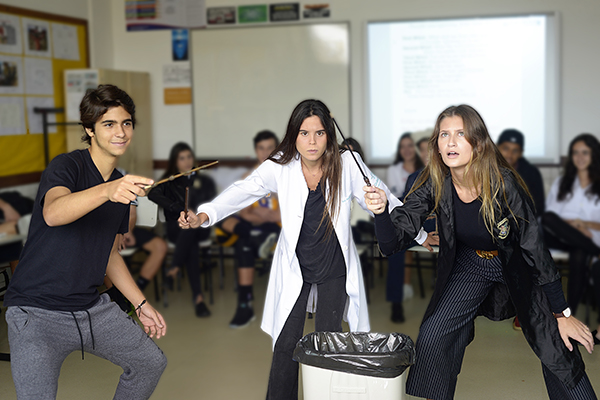
The Extended Essay (EE) is an independent, self-directed research project, leading to a 4000 word dissertation. Students investigate a topic of special interest to them, relating to one of their IB Diploma subjects.
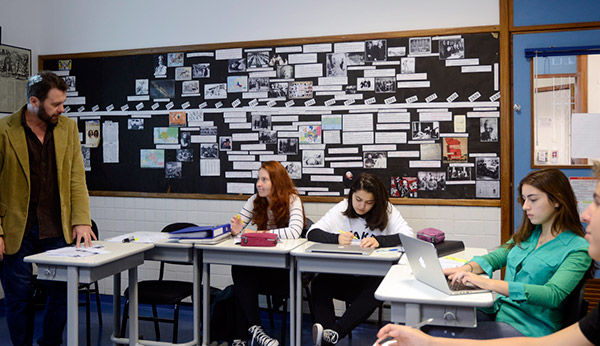
The Theory of Knowledge (TOK) curriculum explores the relationships between the various IB Diploma disciplines and engages students in critical thinking, developing their ability to formulate a logical argument.
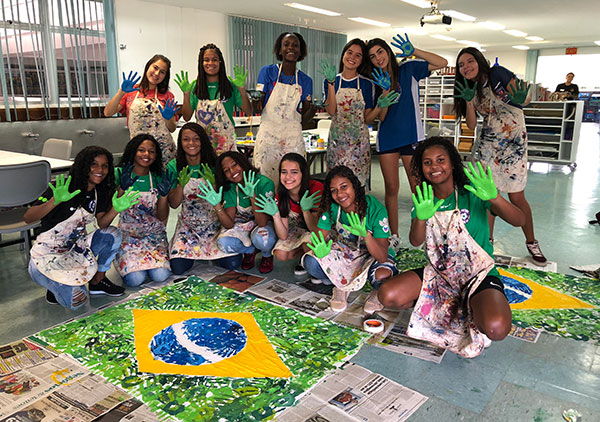
The Creativity, Activity and Service (CAS) programme offers students the opportunity to devise, lead and evaluate a service project, enhancing their own social and personal development through making a real difference to other members of the community.
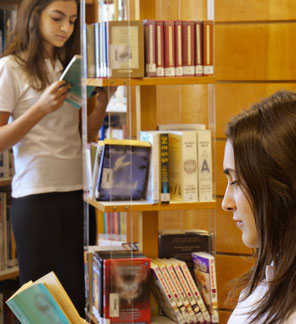
Language A
English and Portuguese together lead to the Bilingual Diploma A choice of Literature, or Language and Literature
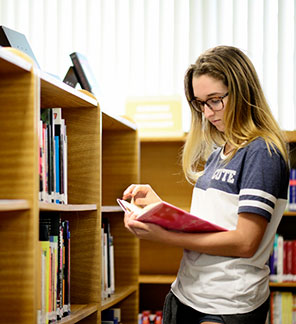
Language B
French or Spanish (optional)
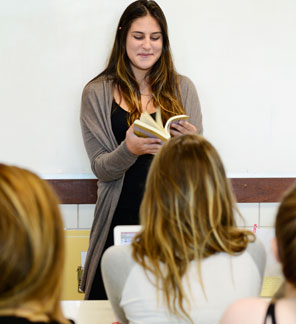
Humanities
Brazilian Social Studies (BSS), Geography, History, or Economics
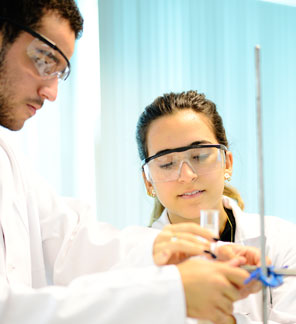
Sciences
Biology, Chemistry or Physics
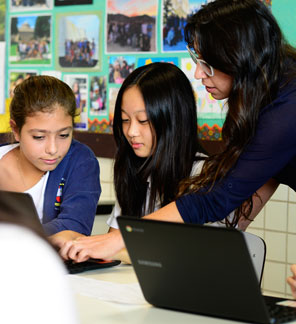
Mathematics
Available as Higher Level and Standard Levels
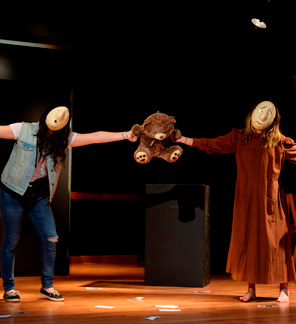
Arts and Electives
Music, Theatre or Visual Arts - or: a third language; a second Individual and Societies option; a second Experimental Science option; or Computer Science
In the International Baccalaureate Diploma Programme (IBDP), a student can gain a maximum point score of 45 points. A passing level is 24 points, along with meeting certain other conditions. Students normally take a total of six subjects, three at Higher and three at Standard Level. In each subject, the highest grade is a 7, with a passing grade for a single subject considered to be a 4. Three additional points are available for excellent performance in Theory of Knowledge and the Extended Essay. The average number of points achieved by our students in their Diploma scores, compared to world averages, also gives an indication of how well our students are doing. Each year, an encouraging number of students attain a Diploma score in excess of 40 points and remarkably, every so often, one of our students scores a maximum 45 points (less than 1% of World Entries reach the maximum).
We encourage virtually all our students to take on the challenge of the rigorous IB Diploma programme. We are especially encouraged by the high level of parent and student engagement in meeting this challenge. When we enter our students for the IGCSE and IB examinations - whatever their ability and current attainment in any given subject - we always encourage them to be ambitious. Our expectation is that each individual student will strive to reach their fullest potential.
In 2023, twelve students achieved the impressive Points Score of 38 points or more. Our top score was 42 points, and four students gained 41 points. We continue to outperform the global average for the November session in both Points Score and Pass Rate. Our continuous aim is to increase that gap.
The table below shows the whole-school results in the IB Diploma Programme in 2023.
TBSRJ IBDP Results |
2023 |
|---|---|
| Total IBDP Students | 100 |
| TBSRJ Mean Diploma Points Score | 32.6 |
| Global Average Points Score NOVEMBER session | 29.06 |
| % 7 – DIPLOMA | 4.4 |
| % 7 - 6s – DIPLOMA | 30.9 |
| % 7 - 5s – DIPLOMA | 56.0 |
| % 7 - 4s – DIPLOMA | 77.7 |
| Global Diploma Pass Rate NOVEMBER session | 72% |